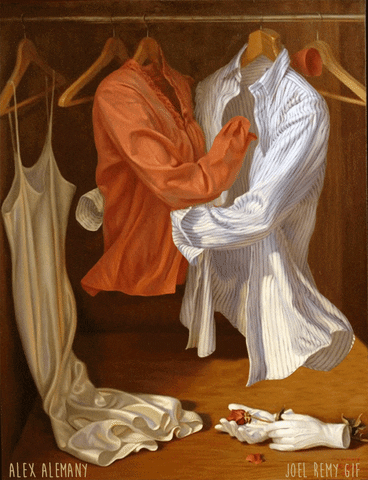interview with poet

MK: Thank you for agreeing to chat with me! With two other published books, you come to poetry from the world of fiction. Where other poets might be a little overly boxed into describing emotions or relationships in increasingly elaborate ways, that is not how I see you using the “I.” Rather, your poems showcase a mastery of storytelling; precise, cinematic pacing (even, sometimes, down to the minute); and sparse but realistic dialogue. You expose the underbelly of very specific familial and marital relationships with moments of watchful vulnerability – your book’s title, Visiting Her in Queens Is More Enlightening than a Month in a Monastery in Tibet, functions in a similar way, revealing so much about its contents yet opening space for both mystery and detail, which are faithfully provided.
MM: That’s so nice to hear, Marina. My poems live in the physical, the phenomenological. I’ve been guided to weave the philosophical more into my poetry and I see the good that could do, and I try but often I rely on the body, the setting, weather, smells, sounds to seep down and offer the thinking, the morality perhaps, because I’m less interested in, or have a limited ability to bring forth directly, the thinking stuff. So, the world I write is often encompassed by family. They are my family and also they are human subjects, and also they are symbols/metaphors and, importantly, strangers. And this allows me distance to take what one would say “really happened” and keep some of it and spin it hard or, if you will, let it drip, like a watercolor, let the images soften, bleed into each other. A painting, I feel, is every bit as truthful, if there’s such a thing, or accurate, if there’s such a thing, as a photograph. Let’s leave the literal to the mathematicians. Ooo! I gotta get that tattooed.
MK: Your book’s description mentions the “blurry” nature of memory. Do you see this space between real memory and the conceit or scene of the poem as the point at which you draw from your “fiction author” side, or is the process entirely different?
MM: Yeah, I don’t see sides or distinctions that well, more interbeing. It’s not one and not another for me or even many. It’s soup. So when we spoon up some noodles and broth and tofu and a fly and the reflection of the lightbulb above floating on the liquid’s surface and the plastic of the spoon and the tongue in my mouth – it’s all soup. Am I a poet? A fiction writer? Maybe when I think back on it, the act, answering questions, but not when writing.
MK: I am also curious about your revision process, and how often a poem might comes to you fully formed.
MM: Voracious but natural. Factorylike – with the workers who get no time off but love the job. That’s my approach to editing which is writing. I think I have had two poems that came to me fully formed or that I recognized were in that state and I left them, but mostly never. I have harmed poems with too much surgery. I bled out the thing that made them dance in an attempt to see what else could be. Still, I do believe in constant revision, even after a poem has been published, even years after it appeared, it will come to me – a voice from the back of the factory shouting, Not right, yet! Work to do!
MK: I know you are a fan of Tony Hoagland. Tell us why, and what great books or new authors are you reading this year that might be influencing the poetry world?
MM: Tony is the smartest smartass squishiest hearted good soul. He has it all wit, metaphor, great ear for vernacular and the erudite – and he is one dangerous versifier. He goes/went (he passed but I still feel him – wish I met him) where people are afraid to: race in particular, white cisgendered manhood, the lovely tightly puckered asshole in an elegy. His poems make me laugh out loud – that’s tough! A smirk okay, chortle, sure – but Tony makes me make horsey guffaws! I am more alive when reading Tony Hoagland’s poems and essays. I recommend: Donkey Gospels, What Narcissism Means to Me, Release from the Dream, Real Sofistikashun, and Twenty Poems That Could Save America and Other Essays.
And I have no idea about “the poetry world.” I’m a suburban old dude who plays pickleball at the rec center. I’m reading more Buddhist oriented books now – The Best of Buddhist Writing, The Heart Sutra by Thich Nhat Hanh. For poetry, I graze – so I read collections like A House Called Tomorrow: 50 Years of Poetry – Copper Canyon Press. I get all sorts of emails as we all do and they try to keep me current. Books on my tables: Mary Ruefle’s My Private Property, Mark Wunderlich’s God of Nothingness, Jim May’s Unusually Grand Ideas, Jane Kenyon’s Otherwise, Evan Boland’s Collected, Cintia Santana – Disordered Alphabet.
You can read more of Michael's poems here.
Michael Mark is the author of Visiting Her in Queens is More Enlightening than a Month in a Monastery in Tibet, which won the 2022 Rattle Chapbook Prize. His recent poems appear in Best American Poetry blog, Copper Nickel, Ploughshares, Poetry Northwest, Sixth Finch, The Southern Review, The Sun, 32 Poems, and more. michaeljmark.com
Interviewer: Marina Kraiskaya